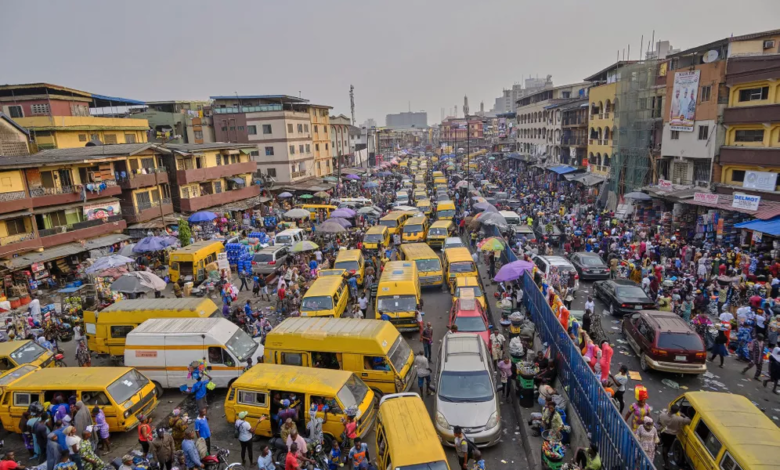Majority Of African Cities At Risk Of Devastating Climate Crisis
The African Development Bank (AfDB) reveals that amongst the 100 fastest growing cities in the world, the majority of those facing an "extremely high risk" of climate shocks are in Africa.

An estimated 70 per cent of African cities, including West Africa’s economic hub Lagos, are at high risk of climate shocks, the African Development Bank (AfDB) says.
The majority of African cities that will be worst hit are the economic epicentres of the continent. Of all the extreme climate shocks, flooding is likely to be the most devastating, the AfDB added.
The risk of flooding is mostly because the continent’s megacities are located on the coasts, the organisation notes. “Africa is also highly exposed to rising sea levels. The Nile Delta in Egypt and island nations such as the Seychelles are on the front lines, as are important coastal cities such as Saint-Louis (Senegal), Lomé (Togo), and Lagos (Nigeria), a rapidly expanding megalopolis bordered by lagoons,” it added.
Floods have caused significant damage, particularly in Lagos state, Southwest Nigeria where HumAngle has documented the loss of lives, destruction of properties and major infrastructures and the resulting displacement of people. The AfDB noted that “numerous African cities that have grown too fast, and are often built on areas of risk, along rivers or on hillsides exposed to landslides.”
Apart from flooding in coastal cities, the northern part of the continent known as the ‘Horn of Africa’ is facing severe droughts due to four consecutive failures of rainy seasons. The United Nations Office for Coordination of Humanitarian Affairs (UN OCHA) revealed that not less than 16 million people have been thrown into extreme hunger in the first half of 2022.
Hunger, coupled with high prices of staple food has exacerbated gender inequalities such as child marriages whereby families are taking extreme measures to survive by marrying off daughters to secure a dowry. Dowries that will help support the rest of the family.
In Algeria, Egypt and Libya, sandstorms have become more disastrous with greater magnitude and has led to the closure of some ports and airports.
Impact on developing countries in Africa
Africa has the least contribution to global greenhouse gas emission, the United Nation revealed, adding that it accounts for only seven percent. However, the region bears the most brunt of the devastating impact from climate change.
According to the AfDB, African cities have grown to be abundant with opportunities and have more to offer in terms of economic growth, education, and health services than rural communities in the region. This has motivated a high numbers of rural dwellers to move to cities. These cities may not have the management capacities to hold them.
“African cities are therefore facing a double challenge,” it added. “Their efforts to provide basic services and jobs to a growing population in economies where the informal sector is most often dominant, are coming up against climatic shocks that are set to increase. These shocks are also causing water scarcity and damage to existing infrastructure.
However, the rural areas are also not excluded from climate shocks. According to a platform that carries out research on agriculture and gaps on food systems, climate change is altering food availability due to crop failure, outbreaks of pests, as well as degradation of land and water resources.
The report stated that African governments are now aware of the strategic importance of cities in responding to climate change, therefore, the AfDB through the Urban and Municipal Development Fund established in 2019 is providing African municipalities with strategies and support for an effective climate action especially in sustainable urban planning, waste management and developing financial tools.
“A plan to protect an area against a climate hazard (in this case, floods) can become an integrated development project, serving the quality of life of urban populations,” the report said.
Support Our Journalism
There are millions of ordinary people affected by conflict in Africa whose stories are missing in the mainstream media. HumAngle is determined to tell those challenging and under-reported stories, hoping that the people impacted by these conflicts will find the safety and security they deserve.
To ensure that we continue to provide public service coverage, we have a small favour to ask you. We want you to be part of our journalistic endeavour by contributing a token to us.
Your donation will further promote a robust, free, and independent media.
Donate HereStay Closer To The Stories That Matter




